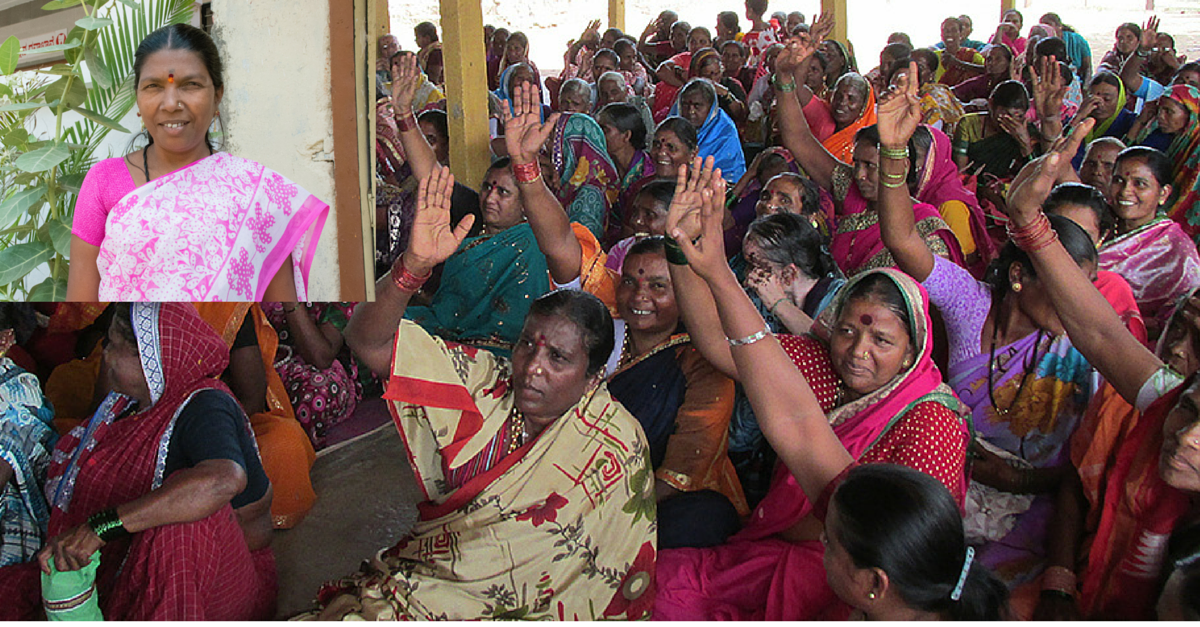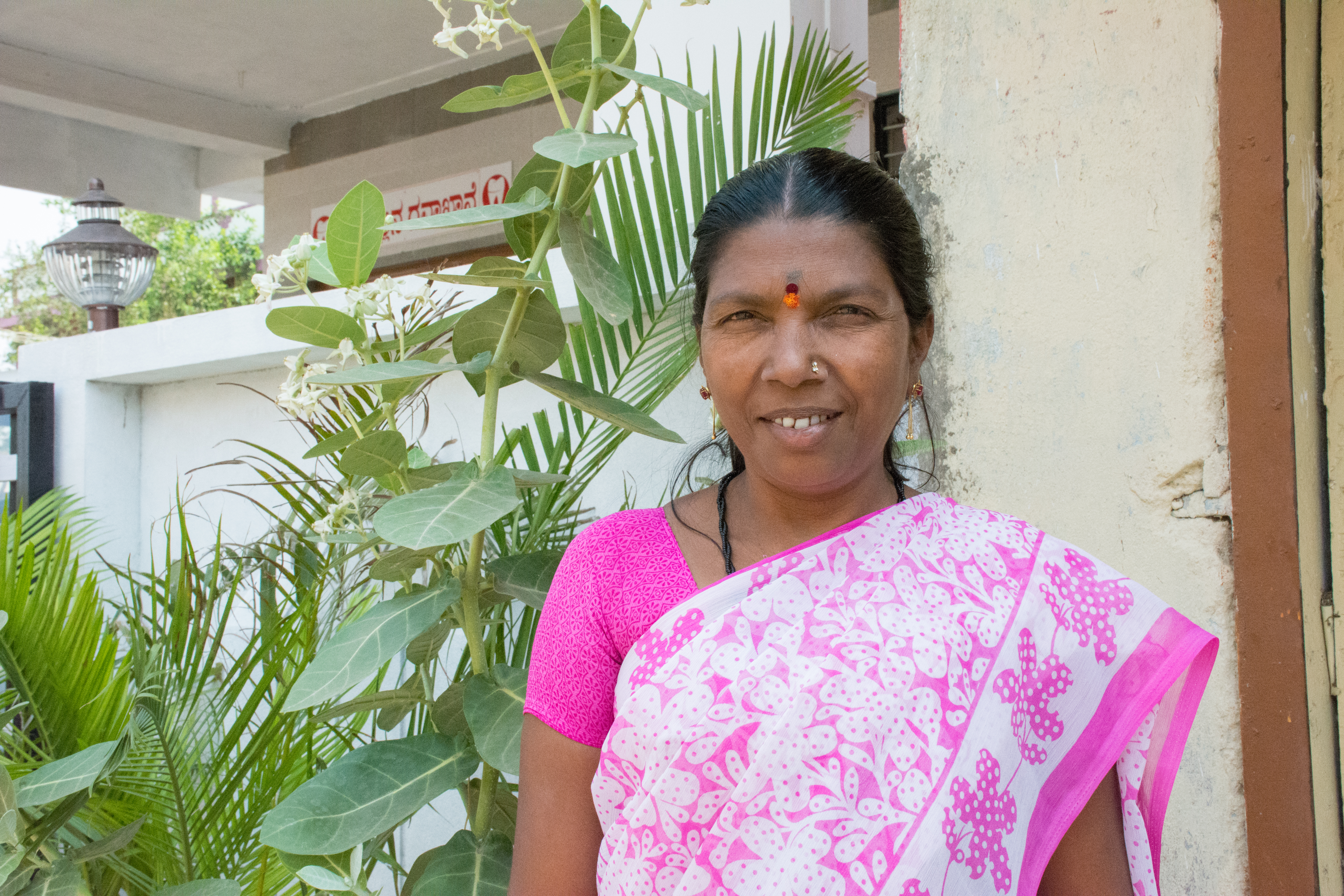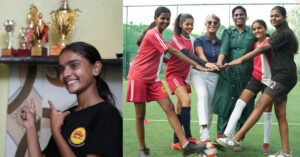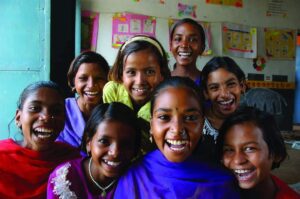Once a Devadasi Herself, Kashava Is Now Helping 3628 Ex-Devadasis Build a New Life
Kashava was made a devadasi when she was just a six-year-old child. After struggling with numerous challenges that life gave her, she has finally emerged a victor. Kashava now works for an NGO which helps devadasis.

Kashava was made a devadasi when she was just a six-year-old child. After struggling with numerous challenges that life gave her, she has finally emerged a victor. Kashava now works for an NGO which helps devadasis.
Devadasi is a Sanskrit term, meaning ‘servant of deva (god) or devi (goddess)’. A devadasi is a girl dedicated to the worship and service of a deity or a temple for the rest of her life.
Traditionally, devadasis enjoyed a respectable position in society. After marrying wealthy patrons, they spent their time honing their skills of music or dance instead of becoming a housewife. They had children from their husbands who were also taught the artistic skills. Often their patrons had another wife who took care of their homes.
pic source – wikipedia
During the British rule in the Indian subcontinent, kings, who were the patrons of temples and temple arts, became powerless. As a result, devadasis were left without their traditional means of support and patronage. Soon this practice lost its positive aspects and it started getting misused to run the sex trade.
In recent times, the devadasi system has started to disappear, having been outlawed in all of India in 1988. Most of the devadasis could get the courage to step out of this evil custom with the efforts of the government and several NGOs, but life is still hard for them.
One such NGO, Mahila Abhivruddi Mattu Samrakshana Samsthe (MASS), is based in the Belagavi (formerly known as Belgaum) district of the southern Indian state of Karnataka. MASS mainly works with dalit (oppressed castes) women, with a focus on ex-devadasi women and their children.
It is a membership association of ex-devadasi women and was registered as a society in September 1997. Current membership of MASS is 3628 ex-devadasi women.

pic source – MASS
Kashava, from a village called Parmanandvadi in Belagavi district, was a member of MASS since 1997 and is now working as a promoter for them. Kashava’s aunt was a devadasi but could not have a child, so she adopted Kashava at the age of three. It was a tradition that a devadasi’s daughter had to follow her footsteps and hence Kashava was made a devadasi at the age of six.
“I remember wearing a green saree, lot of bangles and a necklace of red and white pearls. Everyone said I am married now and a nitya sumangali: a woman eternally free from the adversity of widowhood. I did not know what was marriage then. I did not know what a devadasi has to do,” recalls Kashava.

Though Kashava was officially a devadasi now, her aunt took care that she should not be treated like one. She was sent to a Kannada medium school too. Time flew and Kashava was in the Class 7 now. She was good at studies and was happy with her aunt, who was more like a mother to her. But soon Kashava’s aunt started keeping unwell, and then one day she left her alone in this cruel world.
This was an opportunity for Kashava’s brother, who was struggling to make ends meet back in their village. He took Kashava back to the village but stopped her education. Once Kashava reached puberty, her bother took her to Mumbai and sold her to a brothel. But Kashava managed to run away from there and come back home. The furious brother then threw away both Kashava and his mother out of his house.
Luckily, the government had introduced rehabilitation schemes for devadasis in the year 1991. Kashava and her mother started working in the farms and also availed of training provided by the government. Kashava’s mother also took a loan of Rs. 10,000 from Milaap and bought a buffalo.
Soon Kashava came in contact with MASS and became a promoter. Kashava lost her mother just four months ago, but she is not dependent on anyone now. She earns Rs. 8000 per month, besides a lot of respect from the other devadasis.
The Better India, in association with Milaap, has started a fund-raiser to help 135 Devadasi women move from oppression to opportunity.
Your contribution will be used to provide financial support to former Devadasi women like Kashava to start small businesses like tailoring, rearing livestock, and running small shops. These businesses help them pay their children’s school fees, generate a livelihood for their families, and save for their old age. Our target is to raise INR 18,79,100.
Please click here if you are unable to view the button above.
Like this story? Or have something to share? Write to us:[email protected], or connect with us on Facebook and Twitter (@thebetterindia).
This story made me
-
97
-
121
-
89
-
167
Tell Us More
We bring stories straight from the heart of India, to inspire millions and create a wave of impact. Our positive movement is growing bigger everyday, and we would love for you to join it.
Please contribute whatever you can, every little penny helps our team in bringing you more stories that support dreams and spread hope.




















